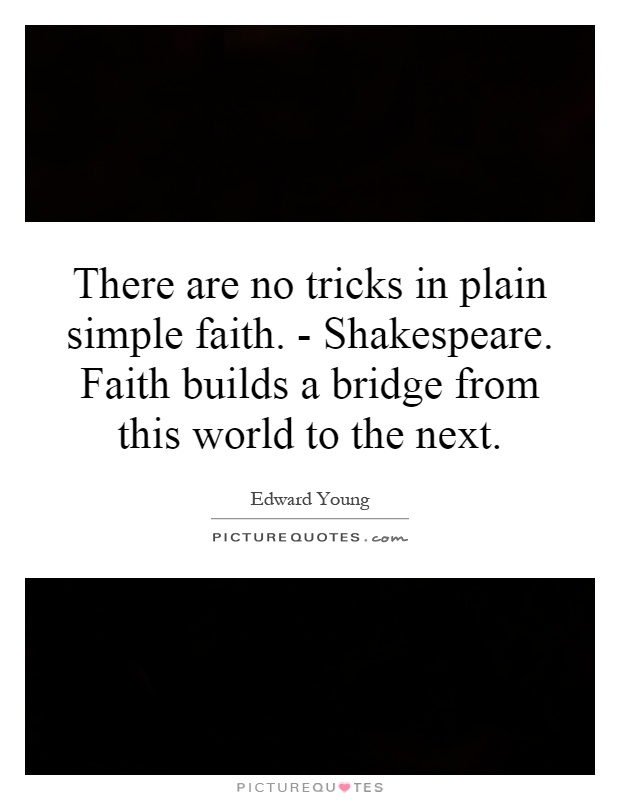There are no tricks in plain simple faith. - Shakespeare. Faith builds a bridge from this world to the next

There are no tricks in plain simple faith. - Shakespeare. Faith builds a bridge from this world to the next
In the realm of literature and philosophy, the concept of faith has been a recurring theme that has been explored by many great minds throughout history. From Shakespeare to Edward Young, faith has been portrayed as a powerful force that can transcend the boundaries of this world and connect us to something greater.Shakespeare, in his works, often delved into the complexities of human nature and the power of belief. In the quote “There are no tricks in plain simple faith,” Shakespeare seems to be emphasizing the purity and simplicity of faith. He suggests that true faith does not rely on deceit or manipulation, but rather on a genuine and unwavering trust in something greater than ourselves. This idea is echoed in Young’s writings, particularly in his poem “Night Thoughts,” where he explores the themes of mortality, faith, and the afterlife.
Young, a renowned poet and philosopher of the 18th century, believed that faith was the key to bridging the gap between this world and the next. In his poem, he writes, “Faith builds a bridge from this world to the next,” suggesting that faith is the pathway that leads us from the physical realm to the spiritual realm. He believed that through faith, we could transcend the limitations of our earthly existence and connect with a higher power.
For Young, faith was not just a belief in something unseen, but a deep conviction that could transform our lives and lead us to a greater understanding of the universe. He saw faith as a source of strength and comfort in times of hardship and a guiding light that could lead us through the darkness of life.












 Friendship Quotes
Friendship Quotes Love Quotes
Love Quotes Life Quotes
Life Quotes Funny Quotes
Funny Quotes Motivational Quotes
Motivational Quotes Inspirational Quotes
Inspirational Quotes